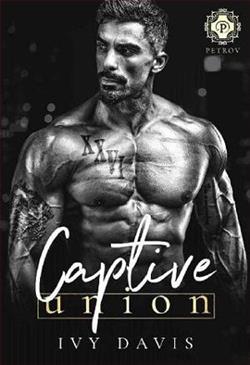Page 44 of The Secret Word
They had given up on the idea of the dower house, as it was small and cramped, and needed a major renovation, but they were setting aside one wing of the house for themselves. With a new kitchen built on to one side of the basement floor, it would provide completely separate accommodations from the main house.
Wilson had found them some builders who were doing the repairs and alterations, and Clem thoroughly enjoyed making up panels for each room with samples of fabric, paint, and wallpaper. She had more time than Chris, since he was working long hours on the three days a week he worked for her father.
Both the earls, Crosby and Halton, had been scandalized that Chris proposed to keep working for a living, even though he now had land and—as it turned out—investments to give him an adequate income for a modest lifestyle.
“But Chris,” Lady Halton had said, somewhat plaintively. “Gentlemen do not work, dear.”
“It seems to me, my lady, that his lordship my cousin works extremely hard—at his Parliamentary duties and running his estates,” Chris had pointed out.
“True, by Gum,” said the earl, much struck by the argument.
“I am learning the enterprises that will be my father-in-law’s legacy to my son,” Chris explained. “It is only proper that I be able to protect and guide my child.”
“Well, yes,” the countess conceded, “but Chris, dear, do you have to let the man pay you?”
The earl changed sides again. “That’s true, too. Chris, a gentleman works for his estate or for his family’s future, but he is not paid for it. Just tell Wright you refuse his salary, and all shall be well.”
Chris shook his head. “No, my lord. I am earning the salary, and I will take it. After all, what difference will it make to Society? They are not to know whether I am receiving a salary or not. I am certainly not going to tell them.”
The countess brightened. “That is true,” she said. “I can let one or two people know, as a confidence, that you are being trained by your father-in-law so you can act as proxy for your son when he inherits. No one needs to know that you are taking a salary.” She rubbed her hands together, and her smile lit up the room. “Oh, Chris, what fun it will be when your son is on the Marriage Market. Excellent bloodlines on his father’s side and all that lovely money.”
Chris thought of pointing out that Clem might have only daughters, but the countess was lost in a blissful dream. Perhaps she would have forgotten before the as-yet-unborn, and possibly-not-yet-conceived, son was twenty-one. And if not, Chris had time to come up with some defenses for the poor lad.
That was just one conversation of many about how Chris should adjust to meet the expectations of a bunch of people he didn’t know and didn’t care to know. People who thought he should be like the lazy self-indulgent dilettantes he had watched from the owner’s balcony in Fortune’s Fool.Not a chance.
To do them credit, though, the Satterthwaites, the Thurgoods, and Wright had closed rank over Grandfather’s ridiculous claims. When his accomplice took a case of breach of promise before the courts, all three gave witness that Chris had been courting Clem the entire time Grandfather claimed he’d been making promises to the other lady’s father, and between them, they were able to account for Chris’s time and cast doubt on the lies from the other side. The case was dismissed. Grandfather disappeared. Whether he was still in England or not, Chris neither knew nor cared.
Chapter Seventeen
When Clem’s andChris’s portion of the manor was ready, they moved in, and after that, divided their time between their London townhouse and Maidenstone Court.
When he was in London, Chris spent most of his days at Wright’s offices, but he also found time to attempt to persuade his relatives and Billy to support the school.
The Earl of Crosby was cautiously in favor. “It is an appropriate activity for a gentleman,” he said. “And the house has not been lived in by family for a long time. However, you will want to be careful that it does not become a Charybdis, sucking down your income, Christopher.”
“We hope to make it self-sustaining, sir, with a combination of sponsored students, charity students, and paying students.”
Billy O’Hara pointed out the flaw in that plan. “You’ll not be able to sell the aristocracy on the idea of educating their sons with street rats. Nor the middle sort, either, probably.” His frown was a thoughtful one, so Chris waited to see where his thoughts took him.
“I’ll pay your fees for six lads,” he declared.
Wright was not so supportive. “You’ll not be spending my hard-earned brass on a swarm of gallows bait, boy,” he declared. “They are scum, and they will always be scum, and that’s that.”
“No,” Chris said. Meeting Wright’s anger with anger never worked, but the man did not know how to counter calmdetermination. “I shall be spending some of the income from my estate, and money from patrons, on giving boys with promise a chance for a future. Boys like me, sir.
“You’re wasting your time,” his father-in-law insisted.
Lord Halton was of the same mind. “Your pupils will murder you in your beds,” he warned, which was something of a startling prognostication.
Chris had no fear of that happening. His first pupils were going to be the children that Billy had already civilized. He would certainly need to be careful with others. He knew, none better, about the savage anger that burned in the breast of the neglected and abused child. They might seem—they were—too cowed to show it. But as soon as they felt safe, the anger would burst out, often in ways dangerous to the child and those around him.
Prospective pupils would need to be carefully vetted, and so would the teachers and other staff. They would not only need to offer a high standard of education, but also understand and have sympathy for the pupils, whatever their background.
He wanted people who genuinely believed in the mission of the school. People who believed his boys were nothing but “gallows bait” would not be allowed near them.
The first step was to choose the two people whose personalities—so everyone advised him—would set the tone for the school: the head teacher, who would set the curriculum, lead the teaching staff, and teach some subjects, and the matron, who would care for the boys’ physical and emotional needs. None of those he interviewed proved to be suitable. In the end, it was, to his surprise, Lord Halton who found his head teacher.
Andrew Partridge was perfect. He had been a tutor to the three sons of an earl, a friend of Halton’s. Before that, he had taught at a prestigious boys’ school. He declared himself intrigued by Chris’s vision for the school, and was not at all putoff to discover that his first six pupils were ex-street children who were being sponsored by a gambling den operator.















